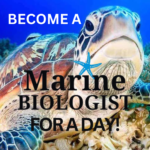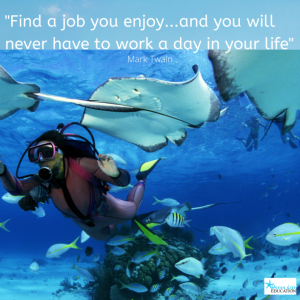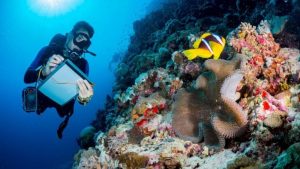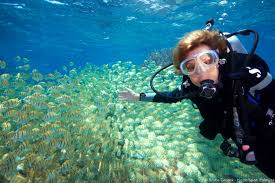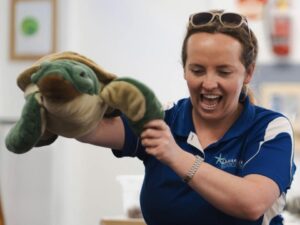
Updating the team page on our website this month made us think that it’s about time to do a blog post dedicated to the incredible people who make our programs so popular – the wonderful crew at Ocean Life Education!
We really do have the best team imaginable who all have one thing in common – their passion for the ocean and their enthusiasm for wanting to share their knowledge and educate others about the big blue.
So, here we report back on what the inspirational crew at Ocean Life Education love about the ocean and why they want to shout about it!
A Passion for the Ocean 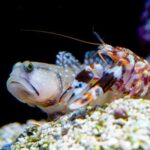
Our educators tell us that they are driven by a deep passion for the ocean due to key factors that have resulted from childhood or ocean experiences. That’s why we believe that giving children the opportunity to experience ocean life firsthand is key to harbouring a love of the ocean. Here’s what they say…
Reasons our Team Say they Love the Ocean 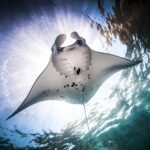
Fascination with Marine Life: The incredible diversity of marine organisms, from the smallest plankton to the largest whales, captures the imagination. The intricate behaviours, unique adaptations, and complex ecosystems of marine life provide endless opportunities for discovery and study.
 Our educator’s favourite ocean animals are diverse, ranging from the tiniest nudibranch, pistol shrimps and gobies, to turtles, humpback whales and graceful manta rays. What an impressive range, demonstrating just how incredible life in the ocean is.
Our educator’s favourite ocean animals are diverse, ranging from the tiniest nudibranch, pistol shrimps and gobies, to turtles, humpback whales and graceful manta rays. What an impressive range, demonstrating just how incredible life in the ocean is.
Environmental Stewardship: A desire to protect and preserve ocean ecosystems against the increasing threats to marine environments, such as pollution, overfishing, and climate change, drive them to work towards conservation and sustainability.
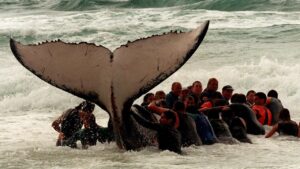
Whale Rescue Coolum 1996
Many of our educators have worked on environmental projects themselves. Director of Education, Richard Coward, has been involved in research projects such as buoyancy syndrome turtle research, shark research and breeding programs.
Many staff, including Richard, have also been involved in rescues, resulting in the release of whales and turtles (amongst other species) back into the wild.
Check out this picture of the rescue that Richard was involved in.
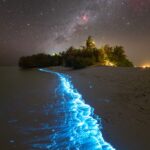
Love of Exploration: The ocean is still largely unexplored, offering a sense of adventure and the allure of uncovering new species, unknown habitats, and geological features.
The mystery and vastness of the ocean inspire curiosity and a spirit of discovery in our crew.
“I was amazed when I went diving at night in Papua New Guinea and was lucky enough to experience a coral spawning event in an ocean that was glowing with bioluminescence (the production and emission of light by a living organism – seen in the image). It just blew my mind! Another time, I was awe-struck when I went diving with a smack (yes, the collective name!) of sea jellies (aka jelly fish). Magic moments that I will treasure forever…and there’s so much more to come!!”
Growing Up on the Coast
Connection to Nature: Our educators all love the ocean, often stemming from childhood experiences, such as beach visits, snorkelling, or scuba diving. This personal connection fuels a lifelong passion for studying and protecting marine environments.
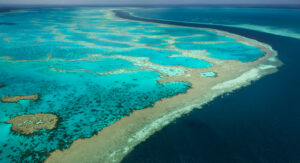 Most of our educators were lucky enough to have grown up next to the ocean in Queensland or NSW. The East Coast of Australia is probably one of the best places on earth to grow up if you love the ocean!
Most of our educators were lucky enough to have grown up next to the ocean in Queensland or NSW. The East Coast of Australia is probably one of the best places on earth to grow up if you love the ocean!
These factors combine to create a strong passion among our team for the ocean and its inhabitants, driving them to be the inspirational educators that they are!



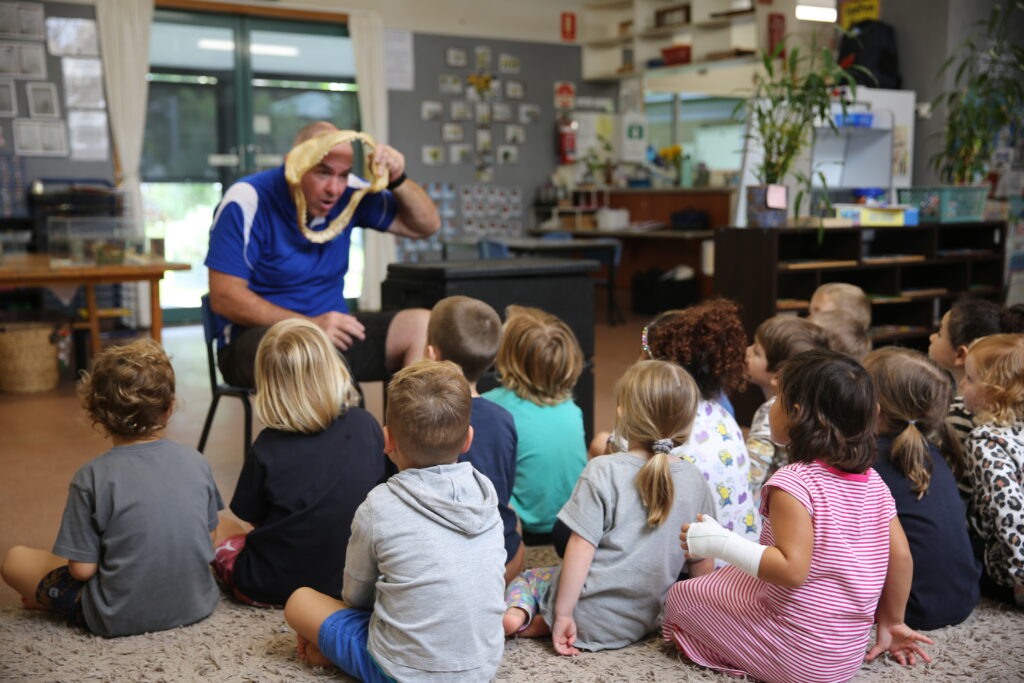
 Ocean Life Education’s Marine Educators
Ocean Life Education’s Marine Educators